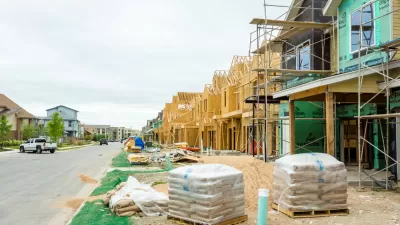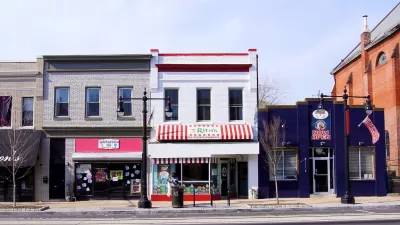Research into previous pandemics, like SARS in 2003, the Spanish Flu in 1918, and the early months of COVID-19 in China, offers insight into what to expect for the economy and the housing market during and after the current pandemic.

Writing for Zillow, Svenja Gudell shares the results of a “deep dive into past research and data on the economic effects of global pandemics to help provide perspective on what the future could hold under various scenarios.” The past research shared here tends to focus on economic output and the housing market, noting that the effect of the coronavirus pandemic is likely to differ from a “standard recession.”
Among the precedents considered in previous literature, mentioned here by Gudell, is the SARS outbreak in 2003: “During SARS, Hong Kong house prices did not fall significantly, but transaction volumes fell by 33-72% as customers avoided human contact (‘avoidance behavior’ like avoiding travel, restaurants, and public gatherings). After the epidemic was over, transactions snapped back to normal volumes.”
A similar narrative is already apparent in China’s experience with coronavirus earlier in the year: “Meanwhile, during the current episode in China, news reports and early data provided by Goldman Sachs (2020) indicate a near-shutdown in the volume of Chinese real estate transactions, although there is not yet a clear effect on real estate prices,” write Gudell.
One caveat about sharing this literature, and Gudell’s explanation of its findings, is that the article was published on March 13, when shutting down entire cities was still a hypothetical scenario, rather than a widespread scenario. That means that some of the less aggressive scenarios discussed no longer provide the floor of expectations for the economic effect of the pandemic.
FULL STORY: Information From Past Pandemics, And What We Can Learn: A Literature Review

Alabama: Trump Terminates Settlements for Black Communities Harmed By Raw Sewage
Trump deemed the landmark civil rights agreement “illegal DEI and environmental justice policy.”

Planetizen Federal Action Tracker
A weekly monitor of how Trump’s orders and actions are impacting planners and planning in America.

The 120 Year Old Tiny Home Villages That Sheltered San Francisco’s Earthquake Refugees
More than a century ago, San Francisco mobilized to house thousands of residents displaced by the 1906 earthquake. Could their strategy offer a model for the present?

BLM To Rescind Public Lands Rule
The change will downgrade conservation, once again putting federal land at risk for mining and other extractive uses.

Indy Neighborhood Group Builds Temporary Multi-Use Path
Community members, aided in part by funding from the city, repurposed a vehicle lane to create a protected bike and pedestrian path for the summer season.

Congestion Pricing Drops Holland Tunnel Delays by 65 Percent
New York City’s contentious tolling program has yielded improved traffic and roughly $100 million in revenue for the MTA.
Urban Design for Planners 1: Software Tools
This six-course series explores essential urban design concepts using open source software and equips planners with the tools they need to participate fully in the urban design process.
Planning for Universal Design
Learn the tools for implementing Universal Design in planning regulations.
Clanton & Associates, Inc.
Jessamine County Fiscal Court
Institute for Housing and Urban Development Studies (IHS)
City of Grandview
Harvard GSD Executive Education
Toledo-Lucas County Plan Commissions
Salt Lake City
NYU Wagner Graduate School of Public Service





























